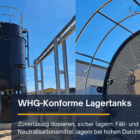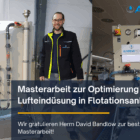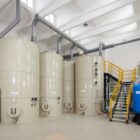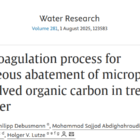The production of hydrogen through electrolysis is a central building block for the energy transition and the development of a sustainable hydrogen economy. An often underestimated but essential factor in this process is the quality of the water used. Ultrapure water is essential here, as impurities such as dissolved salts, organic substances or particles can significantly impair the performance and service life of the electrolysers. This article sheds light on the requirements, production and specific role of ultrapure water in hydrogen production.
Table of contents
Requirements for ultrapure water for electrolysis
In electrolysis, water is broken down into its components hydrogen (H₂) and oxygen (O₂). To ensure optimum efficiency and minimal wear of the electrolysis cells, the water used must meet extremely high purity requirements:
Leitfähigkeit: < 0,1 µS/cm, um elektrische Verluste zu minimieren und eine hohe Elektrolyseffizienz zu erreichen.
TOC (Total Organic Carbon): < 50 ppb, um Ablagerungen und Fouling auf den Elektroden zu verhindern.
Particles: Free of suspended particles to prevent clogging and mechanical damage to the cells.
Ion content: Concentration of ions such as calcium, magnesium, chloride or sulphate must be practically zero to prevent scaling and corrosion.
Dissolved gases: Oxygen and carbon dioxide can influence the pH value and must be minimized.
Challenges due to inadequate water quality
Inadequately treated water can cause considerable problems in electrolysis systems:
Scaling: Dissolved salts such as calcium or barium sulphate can precipitate on electrodes and membranes, which reduces conductivity and shortens maintenance intervals.
Corrosion: Chlorides and other aggressive ions can attack the electrode materials and shorten the service life of the system.
Fouling: Organic substances and particles can clog the membranes and impair the efficiency of gas separation.
Efficiency losses: Each impurity increases the electrical resistance and leads to higher energy consumption per unit of hydrogen produced.
Production of ultrapure water for hydrogen production
The production of ultrapure water requires a combination of advanced treatment technologies. The steps are as follows:
1. pretreatment
Filtration: Removal of suspended solids and coarse particles using sand or microfilters.
Softening: Removal of calcium and magnesium ions to prevent scaling in downstream processes.
Activated carbon: Reduction of organic substances and chlorine that could damage membranes or ion exchanger resins.
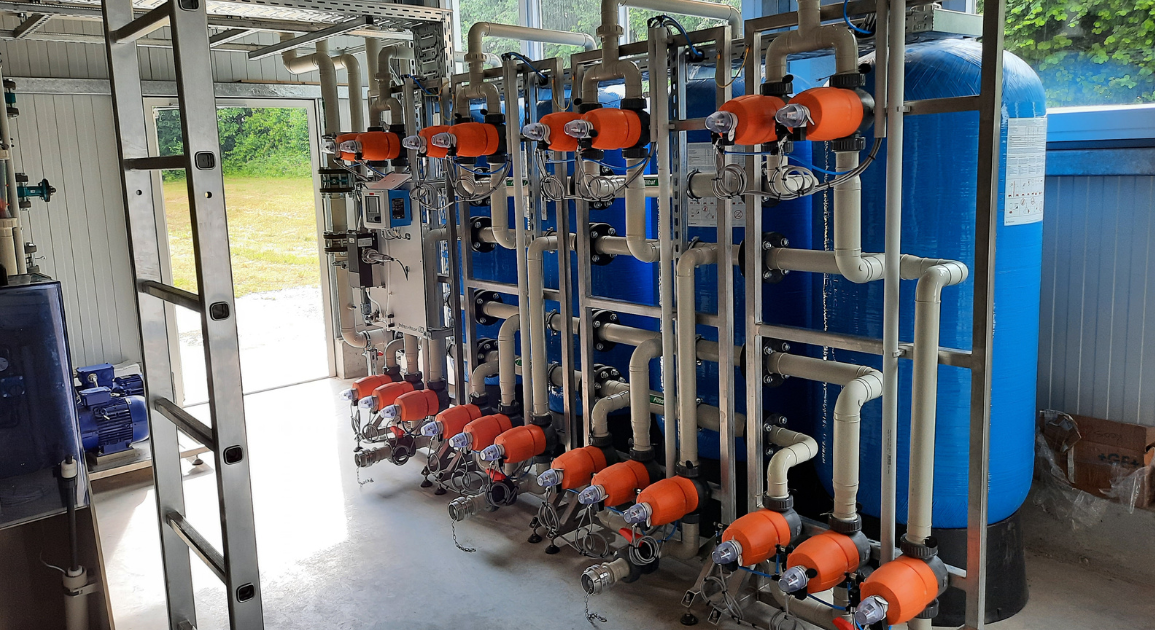
Photo: Our double filtration system with sand and activated carbon
2. reverse osmosis (RO)
Reverse osmosis removes up to 99 % of dissolved salts, organic substances and particles. It is the main purification step and reduces the load on downstream processes.
3. electrodeionization (EDI)
Combination of ion exchange and electric fields to continuously remove the remaining ions. EDI ensures consistent water quality without the use of chemicals.
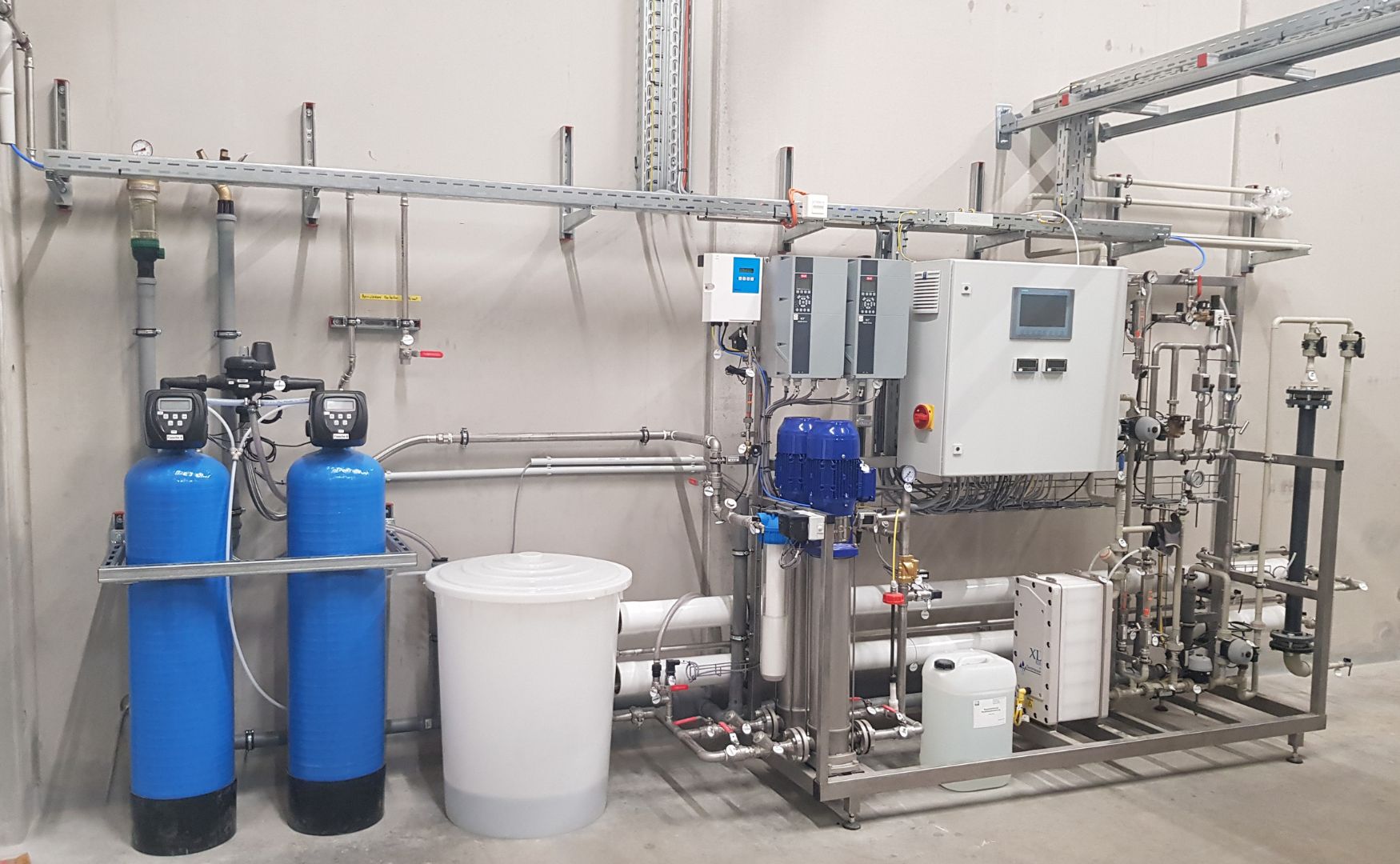
Photo: Our ultrapure water system with softening, reverse osmosis and EDI, for small water flows
4. polishing
UV irradiation: Decomposes organic substances and disinfects the water.
Activated carbon or specialized resins: Minimize the TOC content and provide the necessary final purification.
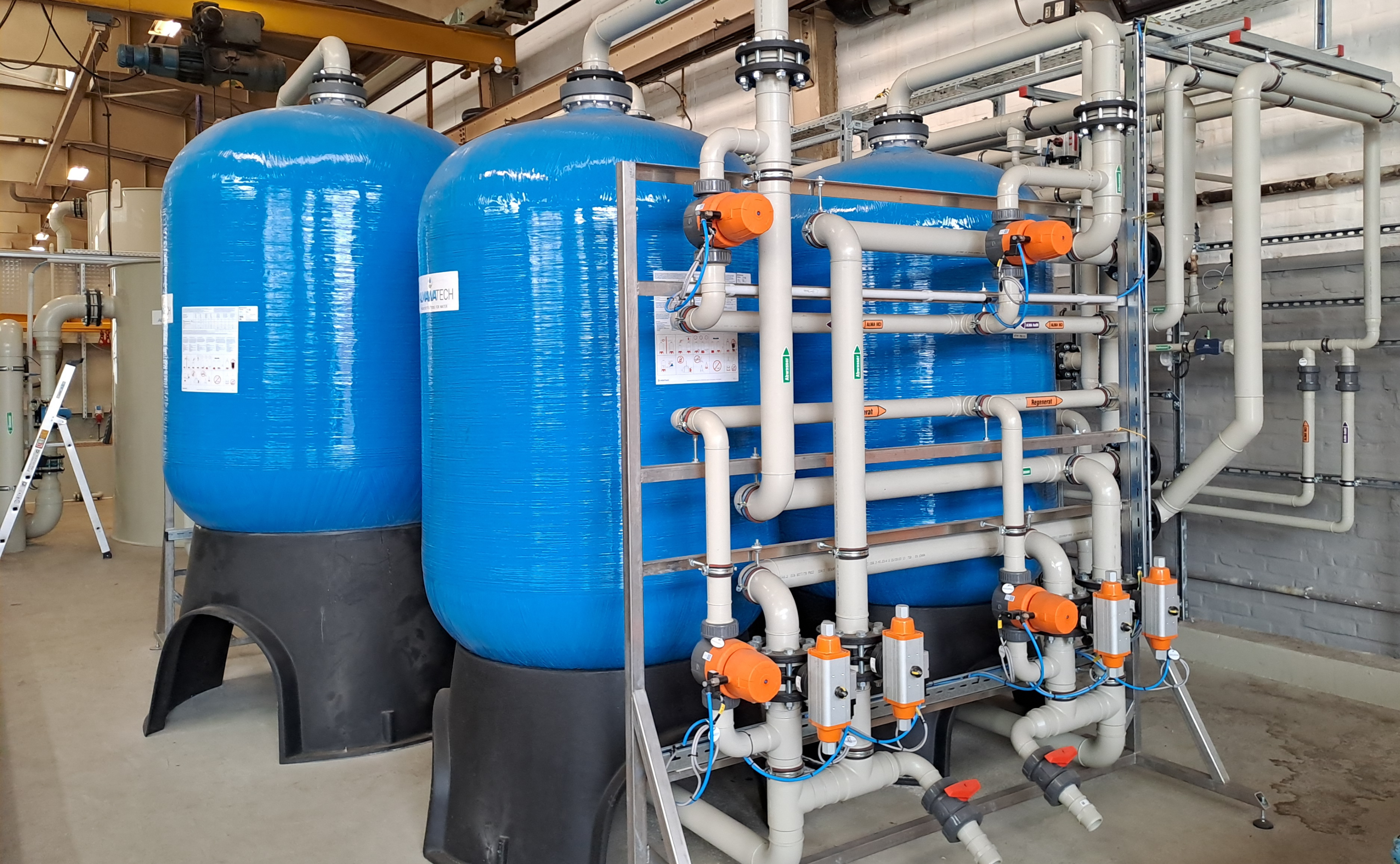
Photo: Our selective ion exchanger system with regeneration system as a polishing stage
Operation and monitoring of ultrapure water systems
The reliability of ultrapure water systems for hydrogen production depends on precise monitoring and effective maintenance management:
Real-time monitoring: sensors continuously measure conductivity, TOC and pH value to ensure that the water quality meets the requirements.
Regular cleaning: Membranes and resins must be cleaned or replaced to prevent scaling and fouling.
Emergency strategies: In the event of deviations in water quality, workaround or emergency plans should be implemented so as not to impair the electrolysis process.
Advantages of ultrapure water in electrolysis
Longer service life of the electrolysers: Minimization of corrosion and deposits.
Increased efficiency: Reduction of electrical resistance due to the absence of dissolved substances.
Lower operating costs: Less maintenance and lower energy consumption.
Constant hydrogen quality: Ensuring a pure hydrogen gas that is required in sensitive applications such as fuel cells or chemical processes.
Application scenarios
1. green hydrogen The production of green hydrogen requires the use of renewable energies and ultra-pure water. Ultrapure water helps to further improve the carbon footprint and ensure process stability.
2. hydrogen for mobility In fuel cell technology, the purity of the hydrogen is crucial. Ultrapure water in electrolysis ensures that the hydrogen produced meets the high requirements of the mobility industry.
3. industrial applications In the chemical industry, hydrogen is used for processes such as ammonia synthesis or refining. The use of ultrapure water reduces process disturbances and ensures consistent quality.
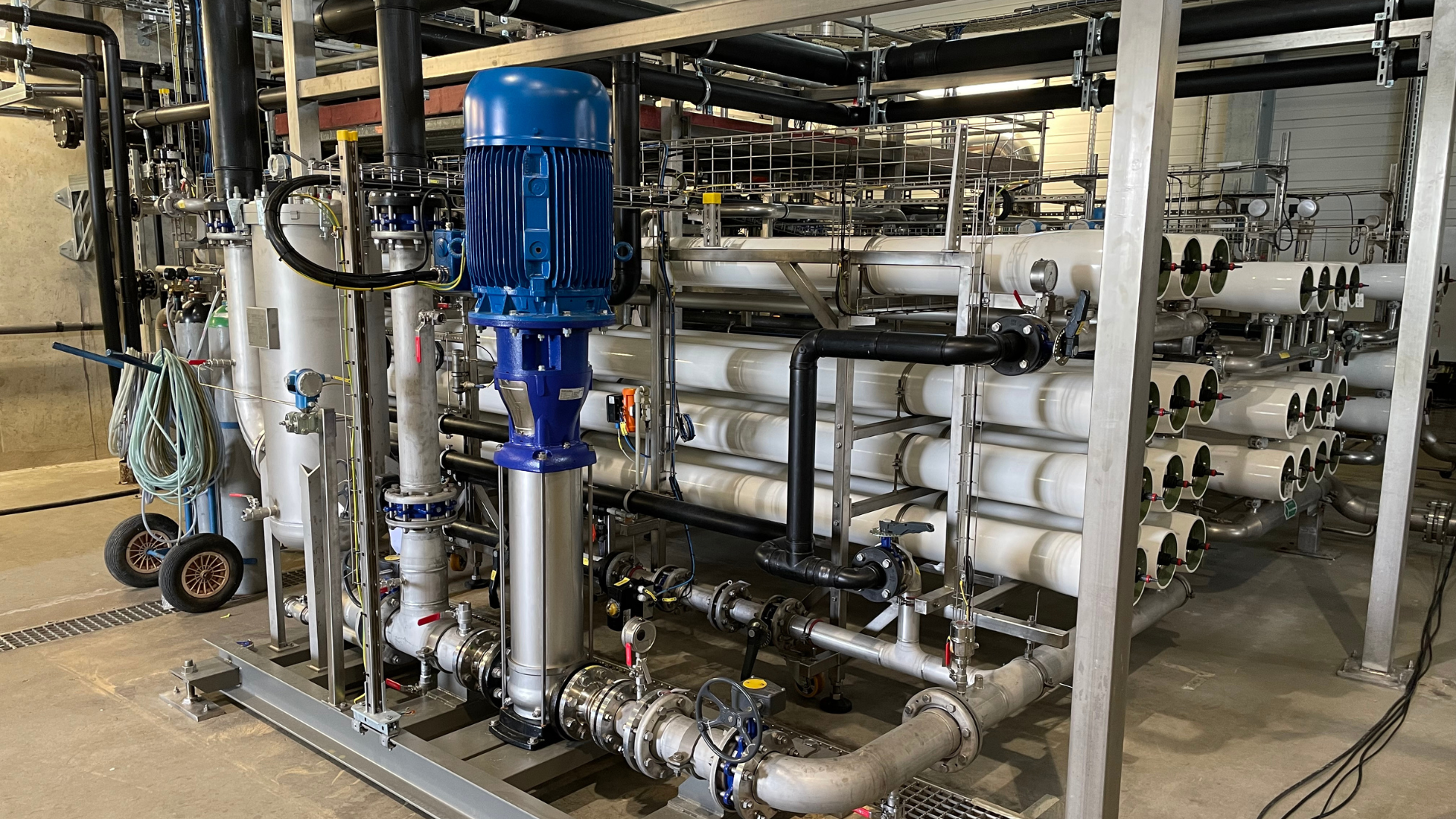
Photo: Our reverse osmosis system for large water flows
Conclusion
Ultrapure water is an indispensable component of modern hydrogen production. It ensures the efficiency, longevity and reliability of electrolysis plants and makes a decisive contribution to the quality of the hydrogen produced. The integration of highly developed ultrapure water systems is a key factor for the success of the hydrogen economy and the realization of sustainable energy concepts.
For further information on our products, please feel free to contact us at any time!




